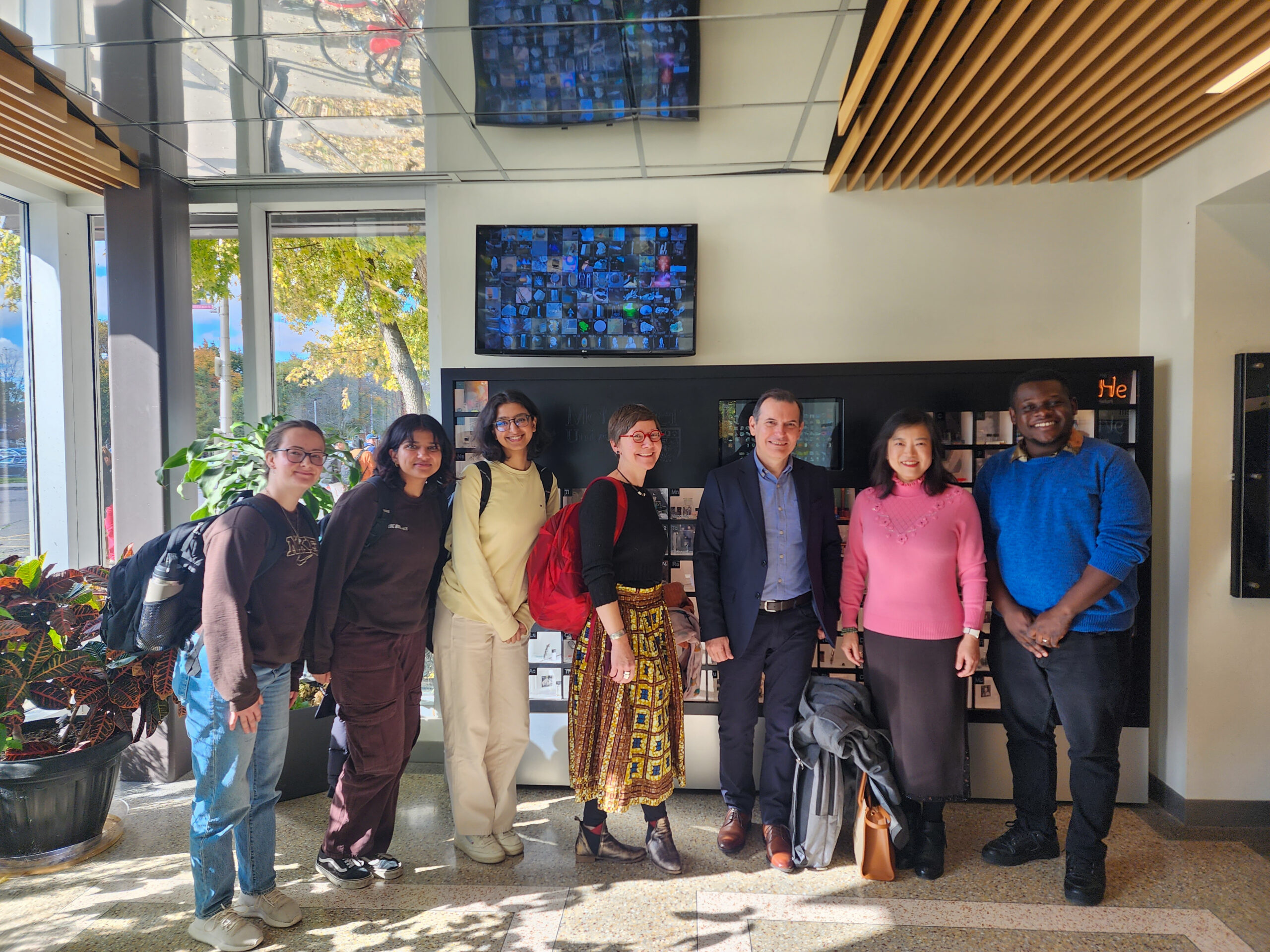Eldercare and Dementia in the Canadian and African Context: The Critical Role of Culture

“In Nigeria, 80% of people are not aware what Dementia is” explains Ozioma Ekemezie as she begins the seminar sharing her own personal story as to what motivated and instigated her passion for the realm of eldercare and dementia.
Ozioma Ekemezie, Director of the Good Hands Initiative for Elderly Care, Canadian Certified Personal Support Worker, and Developmental Service Worker was the first of three speakers for this past week’s Global Health Seminar Series. The second speaker was Dr. Jennifer Watt, Clinician Scientist from University of Toronto, and a Geriatric Physician. Third was Dr. Sharon Marr, Associate Clinical Professor, Medicine, Faculty of Health Sciences and Geriatric Physician. All three guest speakers shared different yet similar perspectives regarding the role of culture, the need for greater holistic approaches in caring for seniors with dementia, current challenges in caring for older adults, and what led them on their journeys to fight for seniors.
Ozioma immediately touched the audience’s hearts and set the tone for the rest of the seminar by opening up about her family’s experience with caring for her father who had suffered from dementia. Her personal experience sheds light on the diversity embedded within individuals’ understandings of those diagnosed with dementia. She explains this concept in the context of Nigeria, whereby the nation consists of over 500 different cultures and languages. She ties her insightful point by emphasizing how each and every culture within her home nation (Nigeria) perceives dementia differently.
In this essence, Ozioma explains that there is a lack of education when it comes to those in Nigeria understanding dementia as a medical disease, which is resulting in an increase in barriers for those seeking access to care. She states that there continues to be challenges associated with stigma and mislabelling due to the limited knowledge surrounding disease, ultimately halting improvements for access to care. Touching upon deeper rooted issues in the nation, she further states that “there are not enough Personal Support Workers (PSWs), there are not enough hands to care for seniors in general, especially those with dementia”. Ozioma expresses that caring for older adults is not a “standardized” or “one-size fits all approach”, care needs to be personalized and acquires the incorporation of family and effective communication.
Ozioma shares this discouraging fact as it showcases why she decided to create “The Good Hands”, a non-governmental organization targeted towards training PSWs through a science-based, balanced care method. Her enthusiasm and devotion in founding this NGO was apparent to the audience as she closed up her presentation by connecting her personal experience to the core principles of the organization. Core principles within her closing remarks centered around the need for greater family involvement, understanding that care is not personalized, and that we must ultimately, “put more hats to the job”.
Did you know that in the next decade 1 in 4 Canadians will be seniors (65 and older)? That is 9.5 million Canadians – there will be more seniors than children in Canada! More surprisingly, 1 million Canadians will be living with dementia (1 in 10). As Ozioma discussed in her segment, there are 55 million individuals living with dementia globally and 7.7 new million cases each year.
Dr. Watt and Dr. Marr focused their segment on Elder Care in Canada, emphasizing the challenges for caring for a growing older adult population and the challenges of the healthcare system. They asked an important question that needs to be differentiated, what is healthcare and is senior friendly healthcare? They discussed the idea of “Gatekeepers”, who are primary care physicians. Dr. Watt and Dr. Marr expressed significant crises in our healthcare system today, the lack of primary care physicians and the growing number of citizens who do not have one. They further elaborated on this concern by describing the lack of multidisciplinary family healthcare teams, a group of diverse healthcare professionals to support patients. As they expressed, these deficiencies have resulted in the under diagnosis of dementia (and other conditions), since there is a lack of pathways for older adults to access primary care teams. Additionally, although medication is publicly funded in Ontario for citizens 65 and older, some drugs that have been proven to treat certain conditions, such as slowing the progression of Alzheimer’s disease or biological medications, are restricted due to the need to pay out-of-pocket as they lack public funding from provinces and insurance companies.
Thirty percent of older Canadians were not born in Canada. According to Dr. Watt and Dr. Marr, caring for diverse older adults (immigrants) is a challenging task, since they have different social determinants of healthcare that affect their personal health, opportunities and access to care and overall outcomes. Briefly discussed were key challenges that need to be addressed in caring for diverse elderly citizens. These challenges include: those living in multigenerational homes compared to those living in alone or with family; an increase in older adults experiencing homelessness resulting in experiencing a greater onset of chronic diseases a decade earlier; population differences in language; occupation (educated vs. uneducated); the lack of the topic of gender being acknowledged; social frailty and the network one possess and access to social resources; education which is related to socioeconomic status; and medical complexity where older adults experience comorbidities.
It is evident that to foster healthy aging, equitable and affordable access to good quality healthcare professionals is vital. As a society, we need to ensure that older adults are empowered to decide how they want to live, what they want to do, and what type of healthcare works best for their situation. Our speakers, Ozioma, Dr. Watt and Dr. Marr have shed light on the need to break stigmas through education and awareness, reform the healthcare system, and emphasized the need to approach caring for older adults from a person-centered perspective.
Student BlogRelated News
News Listing

November 12, 2024

November 5, 2024

Pollution, Power, and Protest: Unpacking Environmental Racism from Africville to Wet’suwet’en
Student Blog
October 10, 2024
